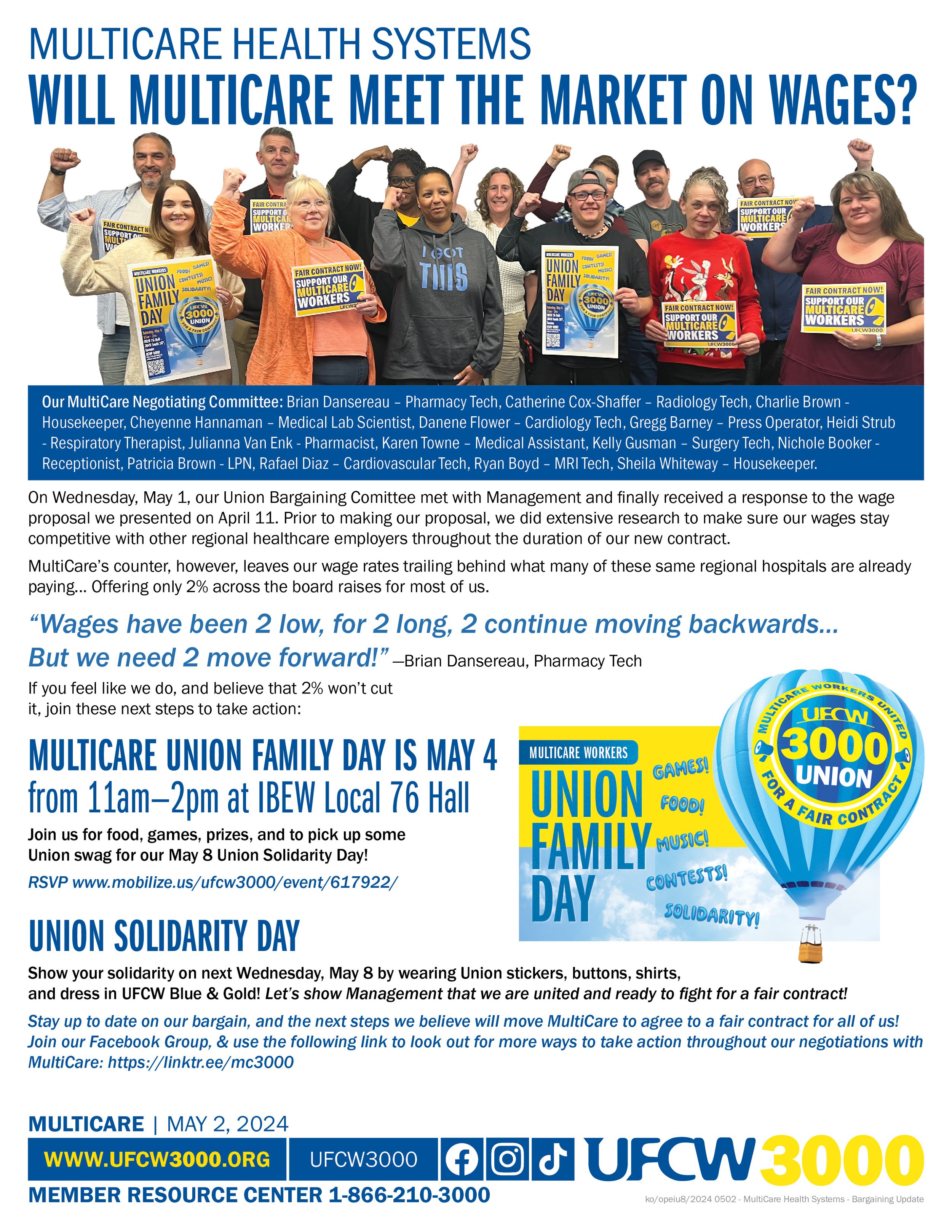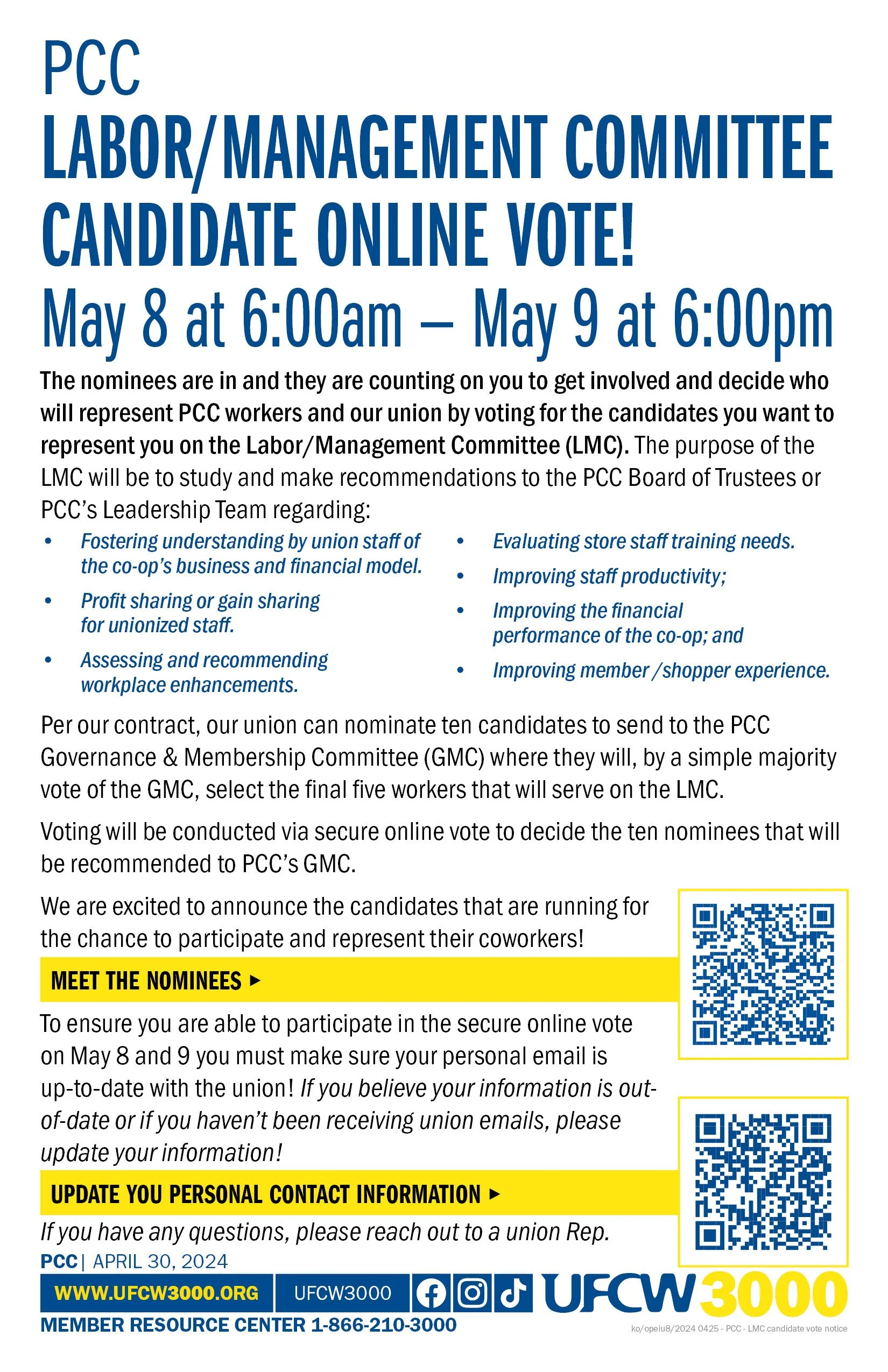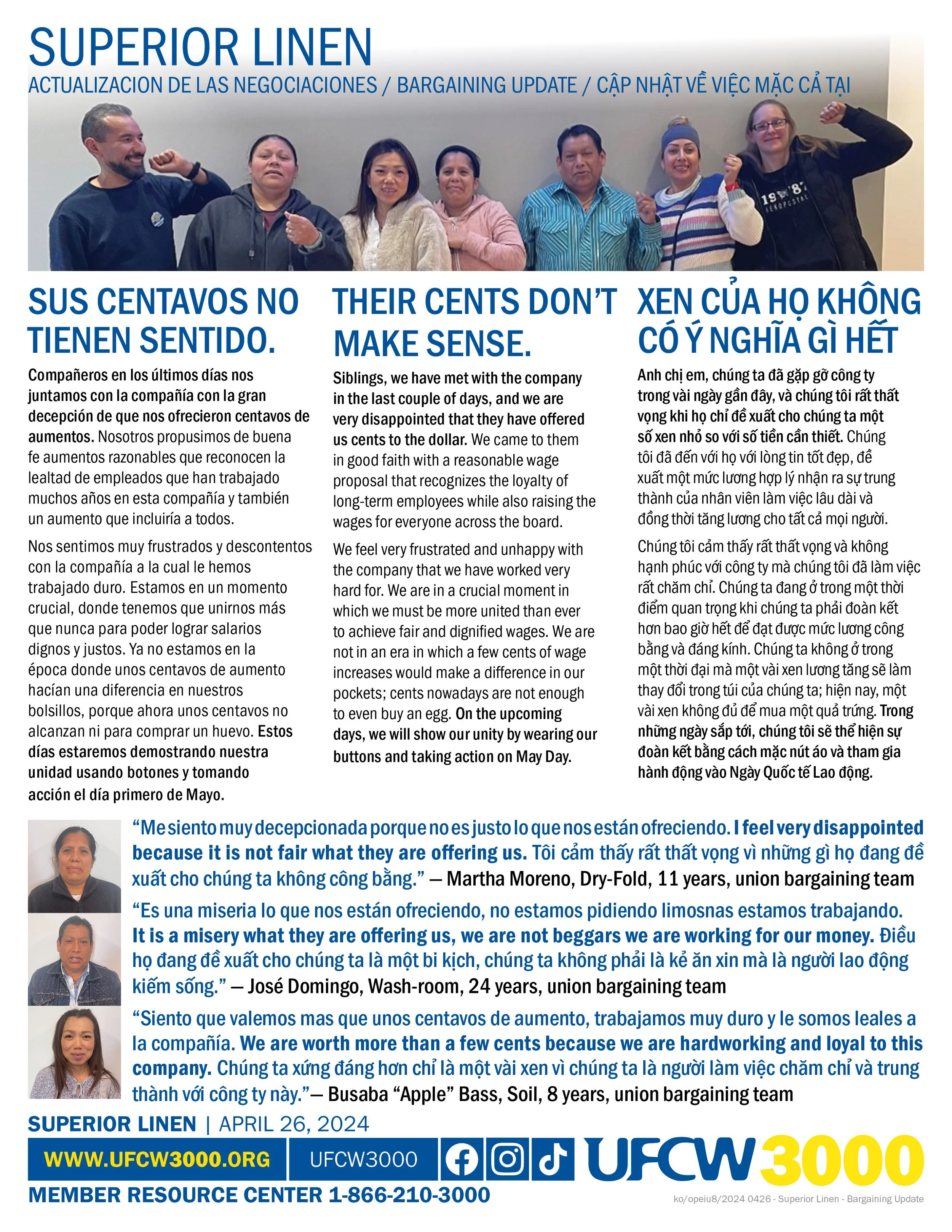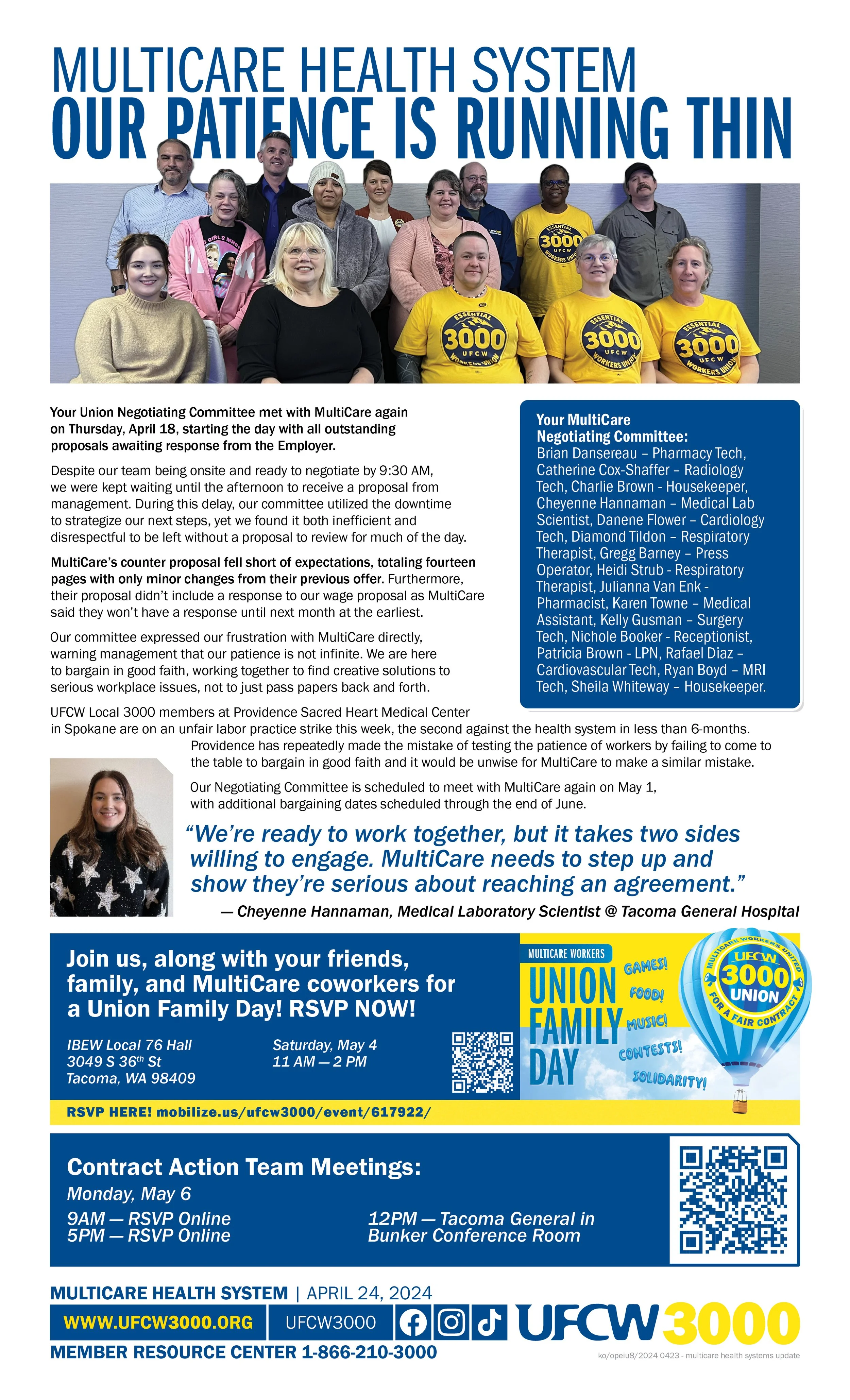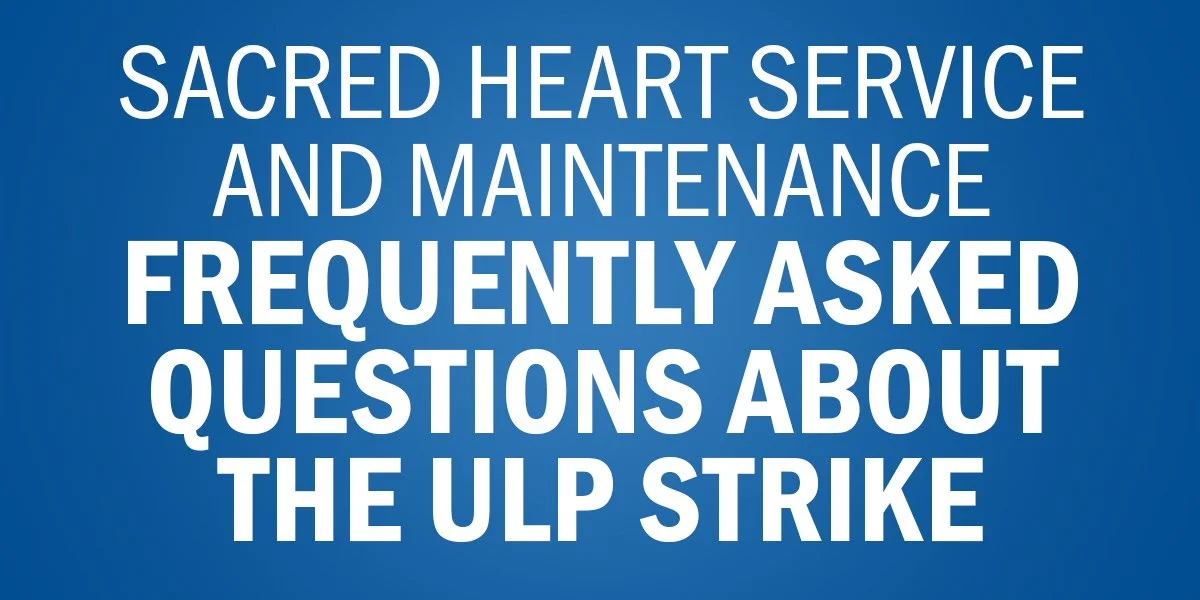Black History Month Member Story: Sam Dancy
/Sam Dancy
Sam Dancy has been a union steward and workplace leader for nearly 30 years. Sam has served on the executive board of what was then UFCW Local 21 and, after the merger with Local 1439, he continues to serve on the executive board as a vice president of UFCW 3000. “I try to be a good steward and representative for my coworkers, union, and community,” is how Sam sees his work as a trade union activist.
RIGHT TO WORK, OR RIGHT TO WORK FOR LESS?
Sam’s union activism took him to St. Louis, Missouri, in 2015 to help overturn the state’s recent change from a pro-union state to a so-called “right to work” state. (“Right to work,” of course, has nothing to do with workers’ rights to have a job, but instead simply limits union rights.) Sam’s decision to go all the way to Missouri to help their campaign to overturn that far-right anti-union law was not only informed by his commitment to protecting and building a strong labor movement, but also by the racist rhetoric that the anti-union campaigns used that tried to divide workers by race. Missouri voters agreed and voted to restore the state to being pro-union!
ORGANIZING FOR HIGHER WAGES AT THE BARGAINING TABLE AND BEYOND
It was after that 2015 campaign that Sam joined the UFCW 21 executive board. Having worked at QFC since 1991, Sam saw grocery store jobs go from living-wage jobs to jobs where he and his coworkers struggled to make ends meet. In addition to organizing in his Westwood Village QFC, in 2016 Sam served on the bargaining committee for the Allied Employer grocery and meat contract negotiations. In 2013, Sam and other shop stewards had prepared their stores to go on strike—a strike averted just two hours before the Union’s deadline. In 2016, the bargaining committee came to the table and made clear to the Employers that they were prepared to do it again if management didn’t listen. The Employers did not want another big fight, and the contract was settled in record time.
After that, Sam and other union activists shifted to collecting signatures for a landmark ballot initiative, I-1433, which raised Washington State’s minimum wage and enacted paid sick leave for workers statewide. The initiative passed easily, and both in counties where the Republican presidential candidate carried and where the Democratic candidate did, showing that working-class values are wildly popular across partisan political lines.
Then he served on the 2019 grocery and meat bargaining committee and helped secure the Sound Retirement Trust’s future, a fight that had been going on since 2008 when the mortgage crisis sent many pension funds into deep funding problems. The 2019 contract settlement was just four months ahead of the beginning of the COVID-19 pandemic, which impacted grocery workers across the world and saw them finally get recognition for their important role in feeding our communities. The term Essential Worker became part of our everyday language during the pandemic.
Sam served on the 2022 bargaining committee as well, and laid out the goals of 2022’s grocery and meat negotiations: "All essential workers deserve to not have to live from paycheck to paycheck. One job should be enough! Grocery store workers deserve stability, and it’s time the employer did their part to guarantee us fair wages, workplace safety, and respect on the job." The 2022 negotiations not only saw historic wages but also addressed the income inequality in different store departments, where some clerks found themselves making 2 or more dollars less than their coworkers in other departments.
BLACK LIVES MATTER AT WORK AND IN OUR COMMUNITIES
The pandemic wasn’t the only historic event of 2020. The murder of Minneapolis resident George Floyd at the hands of police touched off protests across the nation, with African Americans and other people of color demanding an end to the often lethal over-policing they were subject to. Sam and other coworkers wanted to show solidarity with the movement and to demand change. Our union distributed Black Lives Matter buttons to all members who wanted to wear them on or off the job. Equality and fair treatment are working-class issues and that means they are union issues!
Unfortunately Kroger, the parent company of Sam’s employer QFC, sought to silence this basic expression of solidarity. That was an unacceptable infringement on our right to act together as union workers, and Sam had something to say about it: “When we as workers speak out through these buttons and collectively say Black Lives Matter and then QFC and Fred Meyer said to take the buttons off, that was insulting and a violation of the law.” Our union filed an Unfair Labor Practice Charge with the federal government, and Sam was one of the key leaders who spoke up about Kroger’s attempt to silence grocery workers.
And in the end, our union won! In 2023 an NLRB administrative judge ruled against Kroger. “We knew all along we had the right to call out social and racial injustice in the workplace and in our neighborhoods, and this judge’s decision reiterates that right,” Sam said.
As you can see, Sam Dancy has repeatedly been an important part of the history of UFCW 3000, the victories that we have won together, and the ongoing struggle for social and workplace justice. The backbone of any union is in the leaders and shop stewards in the workplace, and Sam is a great example of how we get the job done!





